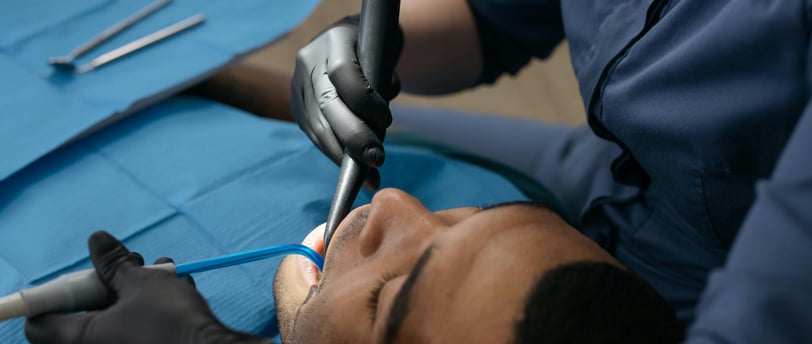Does Dental Work Hurt?
Learn how modern pain management techniques, anesthesia, and sedation make procedures like fillings, root canals, and extractions more comfortable than ever.
2/8/20232 min read


For many people, the thought of sitting in a dentist’s chair triggers anxiety—often due to the fear of pain. Whether it's a routine filling, a root canal, or a tooth extraction, one of the most common questions patients ask is: "Will it hurt?"
The good news is that modern dentistry has come a long way in ensuring patient comfort. While some procedures may cause mild discomfort, advancements in technology, numbing agents, and sedation options have made dental work more comfortable than ever. Here’s what you need to know about pain management during dental treatments.
Fillings
When you get a filling, your dentist numbs the area with a local anesthetic. You might feel a slight pinch when the injection is given, but after that, the procedure itself should be painless. Some patients experience minor sensitivity after the numbness wears off, but this usually subsides within a day or two.
Root Canals
Root canals have a bad reputation, but they shouldn't be feared. The procedure is performed to relieve pain caused by an infected tooth. With proper anesthesia, a root canal is no more painful than getting a filling. Some post-procedure soreness is normal, but it can be managed with over-the-counter pain relievers like ibuprofen.
Tooth Extractions
Extractions, especially wisdom teeth removal, can sound intimidating. However, local anesthesia or sedation ensures that you don’t feel pain during the procedure. Some discomfort and swelling are expected during recovery, but following aftercare instructions and taking prescribed pain medications can make healing easier.
Pain Management Options
1. Local Anesthesia – Numbing agents like lidocaine block pain signals, making the procedure itself painless.
2. Sedation Dentistry – Options range from mild nitrous oxide (laughing gas) to deeper sedation methods for patients with severe anxiety.
3. Advanced Technology – Many dentists use laser treatments and other minimally invasive techniques that reduce discomfort and promote faster healing.
What to Expect After Dental Work
Post-procedure soreness is normal, especially in the jaw joints from holding your mouth open for an extended period. Many patients report that the most uncomfortable part of dental work isn’t the procedure itself, but the stiffness or soreness afterward. Taking a mild pain reliever before your appointment can help with this.
Many patients are surprised by how little pain they feel. One patient, Lisa, shared: "I was so nervous about my root canal, but it was easier than getting a filling! I only felt sore for a day afterward." Another patient, Mark, said: "I had a tooth pulled, and thanks to the sedation, I barely remember it. Recovery was a bit sore, but nothing unbearable."
Pain should never be a reason to avoid dental care. With today’s pain management options, your experience at the dentist can be more comfortable than you expect. If you're anxious about an upcoming procedure, talk to your dentist about your concerns—they can help tailor a plan to keep you at ease.
By taking advantage of modern techniques and preparing for recovery, you can maintain your oral health without unnecessary fear. Don’t let anxiety hold you back from a healthy smile!
